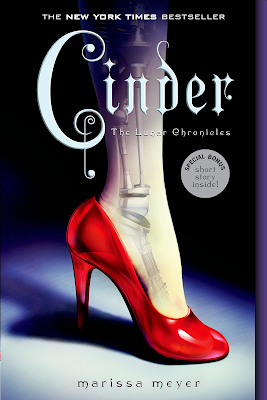The Legacy of The Frog Prince
We all know the story of a spoiled princess who rewarded a frog for returning her golden ball by then throwing him against the wall in a fit of rage. Or do we? The Brothers Grimm tale known as "The Frog King" has gone through so many iterations over the years that while many are familiar with the story, few are aware of its roots. It is commonly believed that the frog's curse was broken with a kiss from a beautiful princess, but the Grimm version is a great deal darker. The princess was so disgusted by the frog that she threw him across the room, when he transformed into something more appealing to her. The version of the story with the kiss is believed to be a later development inspired by Edgar Taylor's translation, which made the princess begin to care for the frog over the course of the story. The best adaptation of this was the one by Jim Henson in 1971, featuring Kermit the Frog and his nephew Robin.
In the Muppet version of "The Frog Prince," Princess Melora does indeed drop her golden ball into the well, where it was recovered by a mysterious talking frog that she finds to be rather gross. Over time, she grows fond of the frog and attempts to kiss him several times throughout the special. The twist is that the wicked witch who cursed the prince also put a curse on the princess so that her words were scrambled and her father could not understand her when she tried to tell him who did it. This twist added intrigue to the story while still allowing it to stay loyal to its roots. Melora was a much nicer version of the princess from the Grimm story, so it was no wonder Robin wanted to help her break her curse. Another notable adaptation was an episode of Shelley Duvall's Faerie Tale Theatre from 1982, starring the late and great Robin Williams as the frog. This one gave us a princess who was every bit as whiny and spoiled as the one in the Grimm tale, but she still fell for the frog and agreed to kiss him in the end. Though most of the stories I've written about this week have Faerie Tale Theatre equivalents, this one stands out due to accuracy to the original story and Robin's exceptional performance as the prince. After the spell-breaking kiss, he later materializes naked in the princess's bedchamber, resulting in some hilariously scandalous castle shenanigans.
There are two excellent novel adaptations of this story, each with its own spin on it. Donna Jo Napoli, who I mentioned in my book post, wrote a unique take on it called The Prince of the Pond. It reads as an early level biology book, with the newly transformed prince learning about his froggy body and abilities for the first time. He lives a decent life for a frog and soon forgets the life he had before. Along the way, he falls in love with a female frog who teaches him how to use his new appendages, but their romance is abruptly ended when a nameless princess shows up and kisses him, turning him back into his former self. Another good one is The Frog Princess by E.D. Baker. This version is about Princess Emma kissing the frog and turning into a frog herself. Sound familiar? It's quite possible that Disney borrowed inspiration from this just like they've done many times before. Unlike the selfish and spoiled princess from the original story or the hard-working Tiana from Disney's version, Princess Emma is an outcast among princesses. She's clumsy and lacks the charm you would expect from a fairy tale maiden. Unfortunately, the rest of the book is pretty forgettable.
This brings us to Disney's 2009 adaptation, The Princess and the Frog. In many ways, Tiana is the polar opposite of the spoiled princess who cried over losing her golden ball. As an African American woman growing up in 1920s New Orleans, she is also not what most people had in mind when they read the medieval European story. Yet, the Disney movie incorporates the same theme as the fairy tale in reverse, which I found rather clever. It is still a story about following through on your promises and taking responsibility for your actions. "The Frog King" shows us this when the frog forced the princess to follow through on her word to let him eat with her in the castle in exchange for retrieving her ball. This time, the roles are switched. In The Princess and the Frog, it is Naveen who the irresponsible one, spending his fortune however he pleased until his parents cut him off and then lying to Tiana about it. Through her hard work and rigid morals, Tiana teaches Naveen how to set goals and follow through on them. He proves he has learned his lesson when he gives up the opportunity to marry Charlotte to regain his fortune so he can remain loyal to Tiana, which is what eventually breaks the spell. In the end, the movie teaches the same lesson about staying true to your word and taking responsibility for your actions, but in a different way. I think Tiana is a fantastic role model for little girls who set big goals for themselves. I am so happy that she was the first princess of her kind.
The tale of The Frog Prince is one that has morphed a great deal since its original translation. It has gone from a story about a spoiled brat getting rewarded for assaulting a frog to one about a hard-working waitress teaching a spoiled prince the meaning of responsibility. Like "Cinderella", "Swan Lake", "The Little Mermaid", and "Beauty and the Beast", the story is known for a magical transformation. That is the one aspect that will remain constant no matter how many times it is retold. Lovers of fairy tales never grow tired of transformation sequences. If there a lesson to learn as a result, that only adds to the magic of a good story. For more fun with this ever-changing story, be sure to check out the video animatic for Auburn and the Frog Prince, a project that a friend of mine has been working on for several years.
In the Muppet version of "The Frog Prince," Princess Melora does indeed drop her golden ball into the well, where it was recovered by a mysterious talking frog that she finds to be rather gross. Over time, she grows fond of the frog and attempts to kiss him several times throughout the special. The twist is that the wicked witch who cursed the prince also put a curse on the princess so that her words were scrambled and her father could not understand her when she tried to tell him who did it. This twist added intrigue to the story while still allowing it to stay loyal to its roots. Melora was a much nicer version of the princess from the Grimm story, so it was no wonder Robin wanted to help her break her curse. Another notable adaptation was an episode of Shelley Duvall's Faerie Tale Theatre from 1982, starring the late and great Robin Williams as the frog. This one gave us a princess who was every bit as whiny and spoiled as the one in the Grimm tale, but she still fell for the frog and agreed to kiss him in the end. Though most of the stories I've written about this week have Faerie Tale Theatre equivalents, this one stands out due to accuracy to the original story and Robin's exceptional performance as the prince. After the spell-breaking kiss, he later materializes naked in the princess's bedchamber, resulting in some hilariously scandalous castle shenanigans.
There are two excellent novel adaptations of this story, each with its own spin on it. Donna Jo Napoli, who I mentioned in my book post, wrote a unique take on it called The Prince of the Pond. It reads as an early level biology book, with the newly transformed prince learning about his froggy body and abilities for the first time. He lives a decent life for a frog and soon forgets the life he had before. Along the way, he falls in love with a female frog who teaches him how to use his new appendages, but their romance is abruptly ended when a nameless princess shows up and kisses him, turning him back into his former self. Another good one is The Frog Princess by E.D. Baker. This version is about Princess Emma kissing the frog and turning into a frog herself. Sound familiar? It's quite possible that Disney borrowed inspiration from this just like they've done many times before. Unlike the selfish and spoiled princess from the original story or the hard-working Tiana from Disney's version, Princess Emma is an outcast among princesses. She's clumsy and lacks the charm you would expect from a fairy tale maiden. Unfortunately, the rest of the book is pretty forgettable.
This brings us to Disney's 2009 adaptation, The Princess and the Frog. In many ways, Tiana is the polar opposite of the spoiled princess who cried over losing her golden ball. As an African American woman growing up in 1920s New Orleans, she is also not what most people had in mind when they read the medieval European story. Yet, the Disney movie incorporates the same theme as the fairy tale in reverse, which I found rather clever. It is still a story about following through on your promises and taking responsibility for your actions. "The Frog King" shows us this when the frog forced the princess to follow through on her word to let him eat with her in the castle in exchange for retrieving her ball. This time, the roles are switched. In The Princess and the Frog, it is Naveen who the irresponsible one, spending his fortune however he pleased until his parents cut him off and then lying to Tiana about it. Through her hard work and rigid morals, Tiana teaches Naveen how to set goals and follow through on them. He proves he has learned his lesson when he gives up the opportunity to marry Charlotte to regain his fortune so he can remain loyal to Tiana, which is what eventually breaks the spell. In the end, the movie teaches the same lesson about staying true to your word and taking responsibility for your actions, but in a different way. I think Tiana is a fantastic role model for little girls who set big goals for themselves. I am so happy that she was the first princess of her kind.
The tale of The Frog Prince is one that has morphed a great deal since its original translation. It has gone from a story about a spoiled brat getting rewarded for assaulting a frog to one about a hard-working waitress teaching a spoiled prince the meaning of responsibility. Like "Cinderella", "Swan Lake", "The Little Mermaid", and "Beauty and the Beast", the story is known for a magical transformation. That is the one aspect that will remain constant no matter how many times it is retold. Lovers of fairy tales never grow tired of transformation sequences. If there a lesson to learn as a result, that only adds to the magic of a good story. For more fun with this ever-changing story, be sure to check out the video animatic for Auburn and the Frog Prince, a project that a friend of mine has been working on for several years.












Comments